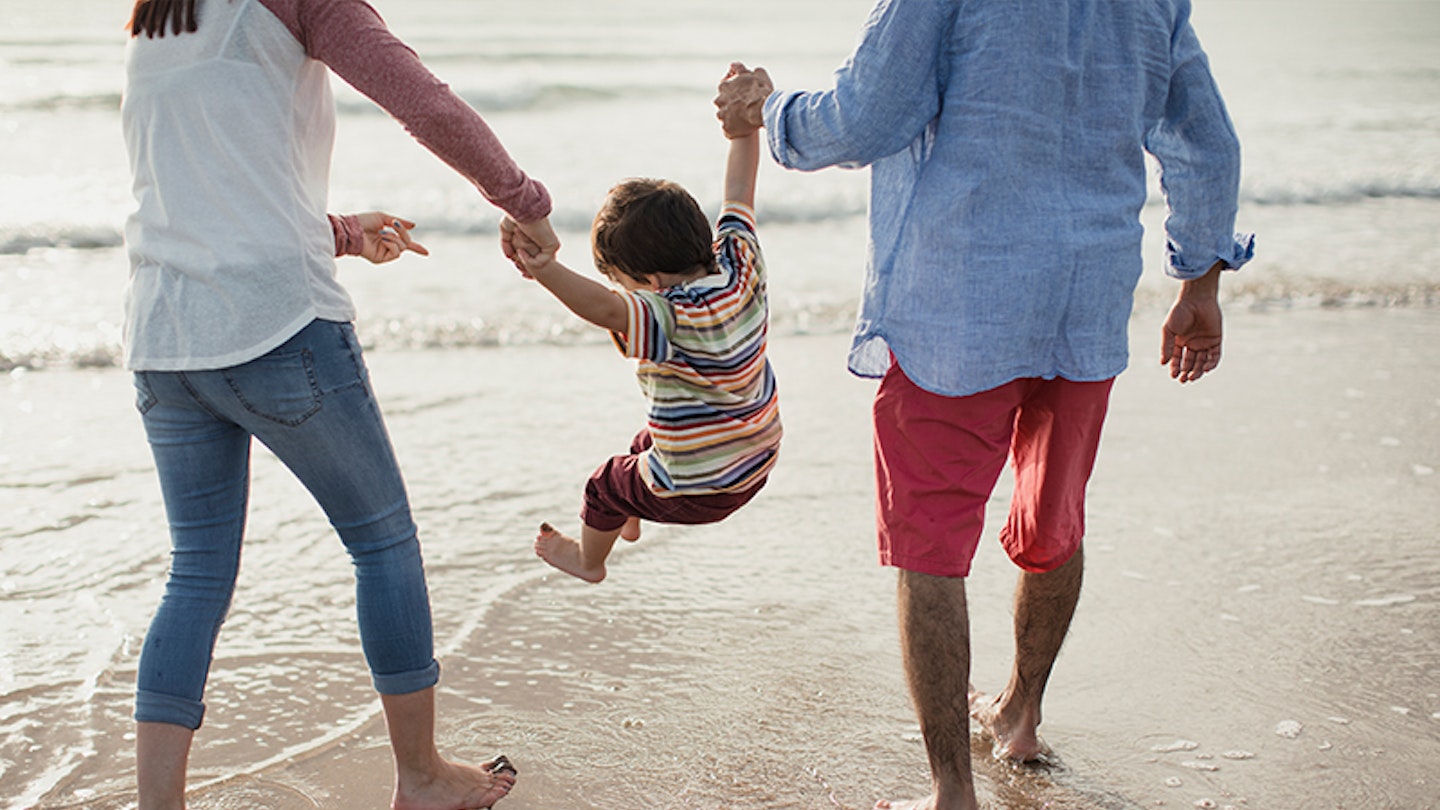Yes, summer’s here and it’s time to look forward to a well-deserved holiday – whoop!
‘Family holidays are really special,’ says Karen, founder of travelmadmum.com. ‘They may not be the night-life-filled expeditions of the past but instead, you get to switch off digitally and spend quality time together. Trips away are a chance to bond and build memories that will last for the rest of your lives.’
And whether you’re heading off to Thailand for a backpacking adventure, or jumping in the car for alaidback staycation in the UK, by following our pre-trip planning steps you can make sure you’ve covered everything so that your holiday will run smoothly and be remembered for all the right reasons!
Click on the below to jump to the relevant section or just simply scroll!
-
Pre-holiday planning
-
Important stuff to bring
-
Smart buys to make your trip easier
-
Packing tips
-
How to make travelling a breeze
-
Travelling by car
-
Travelling by plane
-
Useful sites and apps
1) Time to get planning:

‘We all have different ideas of the perfect holiday,’ says Karen. ‘This summer, our plan is to travel from London to Mongolia in a camper van – but not everyone would enjoy that!’ So whether you’ve already booked a trip away or are hoping to grab something last minute, take some time to look at our list and decide what is your priority for your holiday.
Having time to yourself: If you already spend most of your days looking after your baby or toddler, and could do with a bit more ‘you time’ on your break, get the conversation started now. Explain to whoever you are going on holiday with, whether that’s your partner, family, or even friends, how much you’d appreciate a little time to yourself. ‘Make sure you talk about this before you go on holiday, so you don’t have expectations that aren’t met,’ says Karen. Having that conversation now, rather than assuming that your holiday partner is automatically going to want to do lots of childcare, means you’re more likely to both enjoy yourselves. The other option is to choose a resort with a kids’ club or creche, so that your baby can be looked after while you put your feet up for a change. For inspiration take a look at travel companies like Totstotravel.co.uk; totstoo.com; clubmed.co.uk or markwarner.co.uk.
Getting to relax: Unless you’re desperate for soaring temperatures or Insta-worthy snaps of a tropical beach, then it might be worth staying in the UK. ‘Sometimes the most relaxed holidays with youngsters to be had here, in a self-catering apartment,’ says Karen. ‘You don’t have to deal with flights, passports, or not being able to speak the language. If your baby is older than six months they can have their own room, so you can chill out in the evening without needing to tiptoe around. You can cook your own food, do your own laundry and you can also choose an apartment with a microwave and dishwasher, which makes life easier if you’re formula feeding. Airbnb.co.uk is the go-to option for lots of people, but I like using booking.com. There’s a ‘family-friendly’ filter and you can even filter to see reviews left by families.’
Forgetting the chores: Being a mum is no easy job, and sometimes the best thing about being on holiday is just having someone to look after you! It can be bliss forget about the nitty-gritty of cooking the meals, changing the beds and cleaning the rooms, and means you get to focus on what’s really important – having fun with your little family. If you want privacy/more space, look for an apartment within a hotel complex, so you get the benefits of hotel life but with a bit more freedom and space.
Enjoying the great outdoors: Sometimes the best way to completely break from the usual routine is to completely change your surroundings - and camping is a great way to do that. After all, when you’re under canvas, surrounded by the best the natural world has to offer, you suddenly get a new perspective. Karen’s got a few tips to make it easier: ‘It’s worth asking for a pitch near trees, so that you know there’s some natural shade. Bring a portable cot for your baby that is slightly elevated from the ground, so it doesn’t get too cold. And if you’re still feeding your baby at night, take an airbed with bedding, rather than a sleeping bag. That way, you can both keep warm in the early hours!’
2) Sort the serious stuff
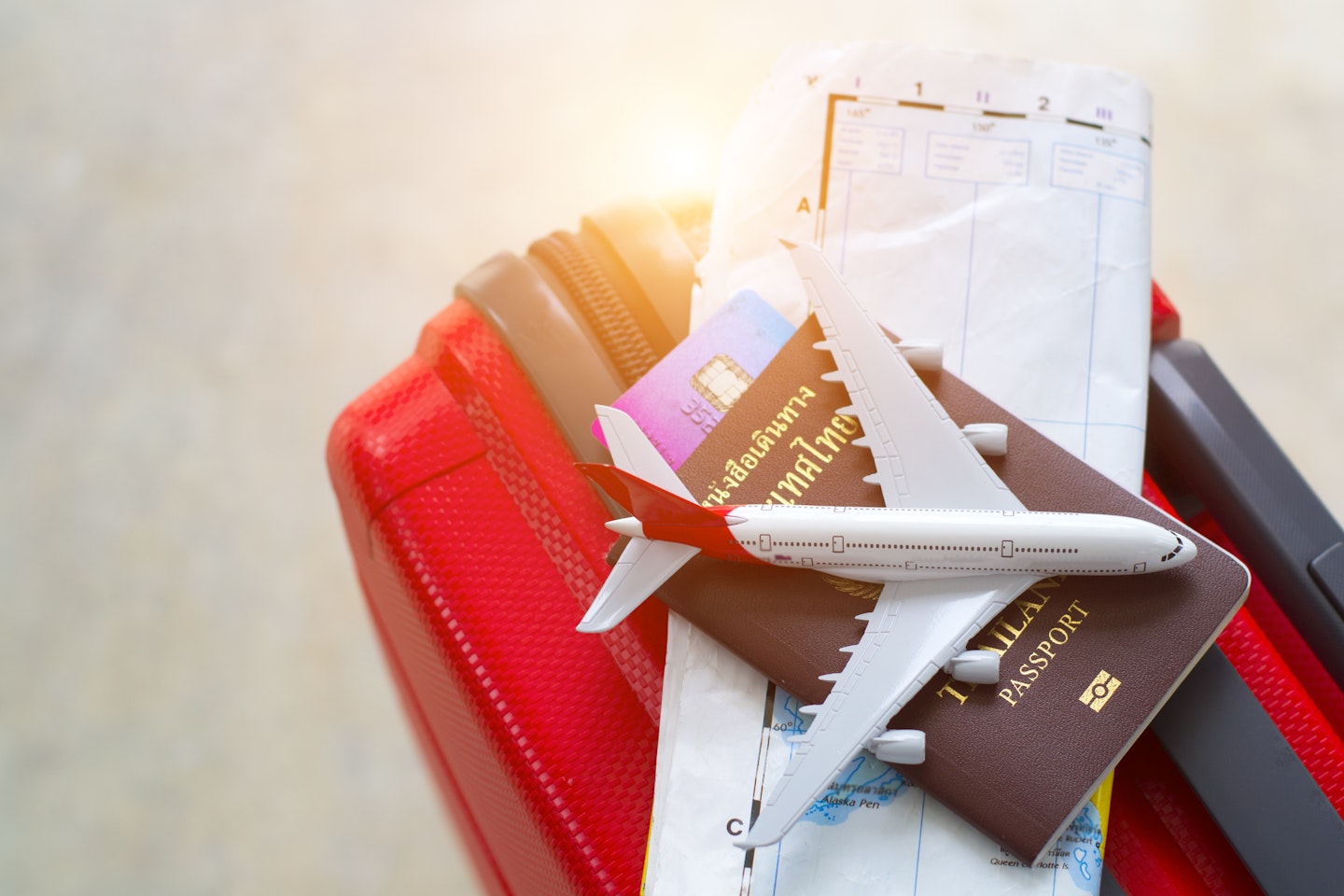
All booked? Now get the holiday admin ticked off your list, so you can concentrate on making some fun plans!
-
Passports and visas: Everyone (including babies) needs their own passport, which must be valid for at least six months after you return home. If your surname is different to your child’s, bring his birth certificate, and if you’re not travelling with your child’s father, consider bringing a letter of consent from him, which can make any checks at border control run more smoothly. ‘Finally, check if you’ll all need visas for the country you’re visiting,’ says Karen.
-
Insurance: ‘It is vital to get insurance,’ says Karen. Make sure it covers medical treatment, repatriation, belongings and cancellations. ‘Look at the small print before you choose: make sure it covers particular conditions, including allergies, and if you’re pregnant, make sure you’re covered for pregnancy and (just in case) for birth/ coming home with a baby!’
-
Vaccinations: If your child is due any routine childhood vaccinations, try to arrange them at least a week before you travel, just to make sure that he’s in peak condition for his holiday. And remember, you may need vaccinations too. ‘If you’re breastfeeding, make sure you tell the doctor before you have the jabs,’ says Karen.
-
Allergy cards: If your child has a food allergy, go to allergyaction.org/translations/ to print out phrases and words that explain his condition in different languages.
-
Scan your docs: Scan all your important travel documents and email them to yourself, just in case anything gets lost when you’re away.
-
Create ID bracelets: Having an ID bracelet for your child will give you peace of mind when you’re on holiday – and it’s also worth creating one for your youngster’s favourite cuddly, just in case!
M&B loves: Ladybird Child ID bracelet, £3.99, littlelife.com
3) Smart buys which will make life easier
Embrace tech and smart kit when planning your trip to make life much easier when you’re away
Smart travel buys
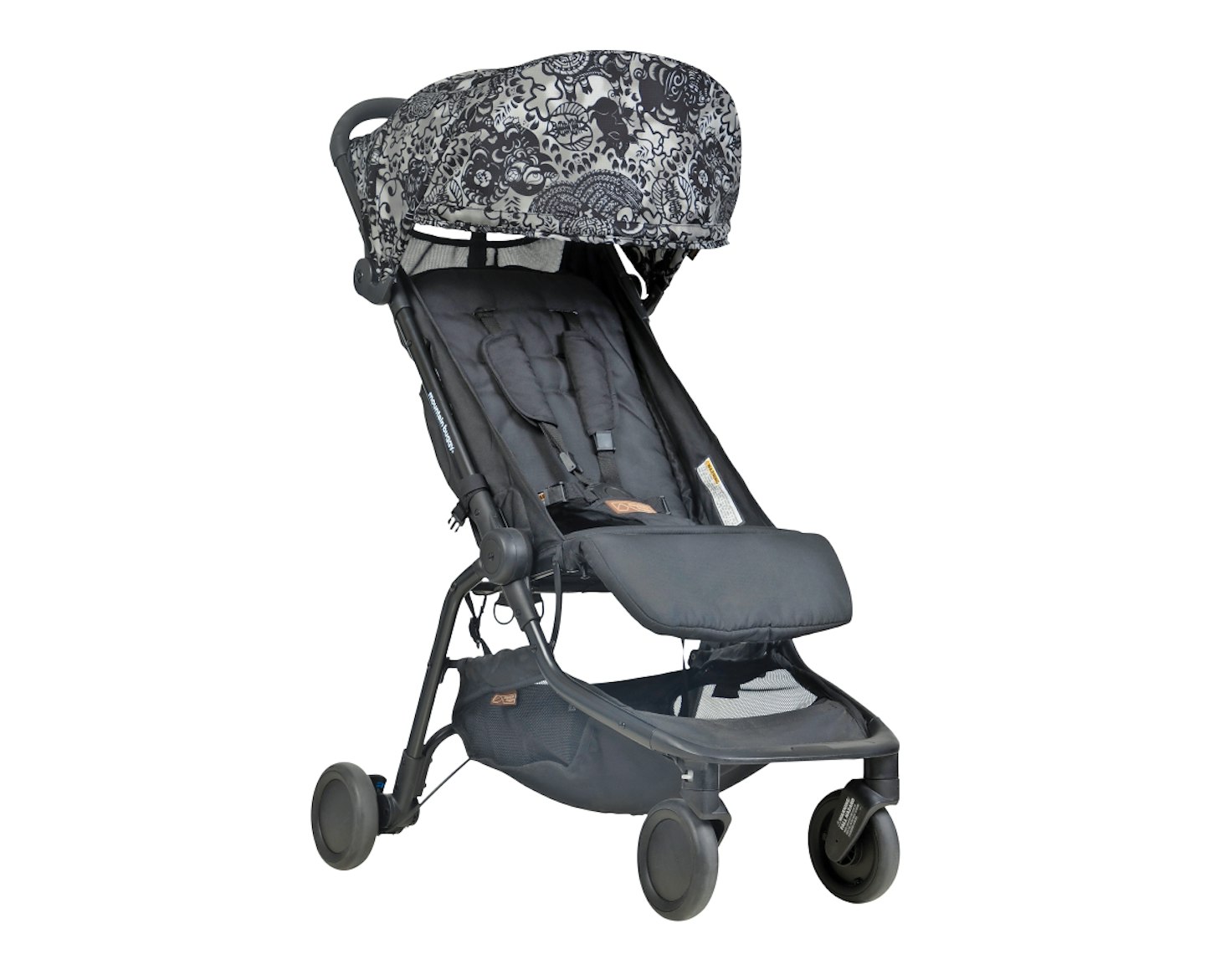 1 of 3
1 of 31) Mountain Buggy Nano, £199, mountainbuggy.com
Weighing less than 6kg, this lightweight buggy is compact enough to tuck into a car boot or even an overhead luggage compartment. To make it newborn-friendly, pair it with the Mountain Buggy Cocoon, £49
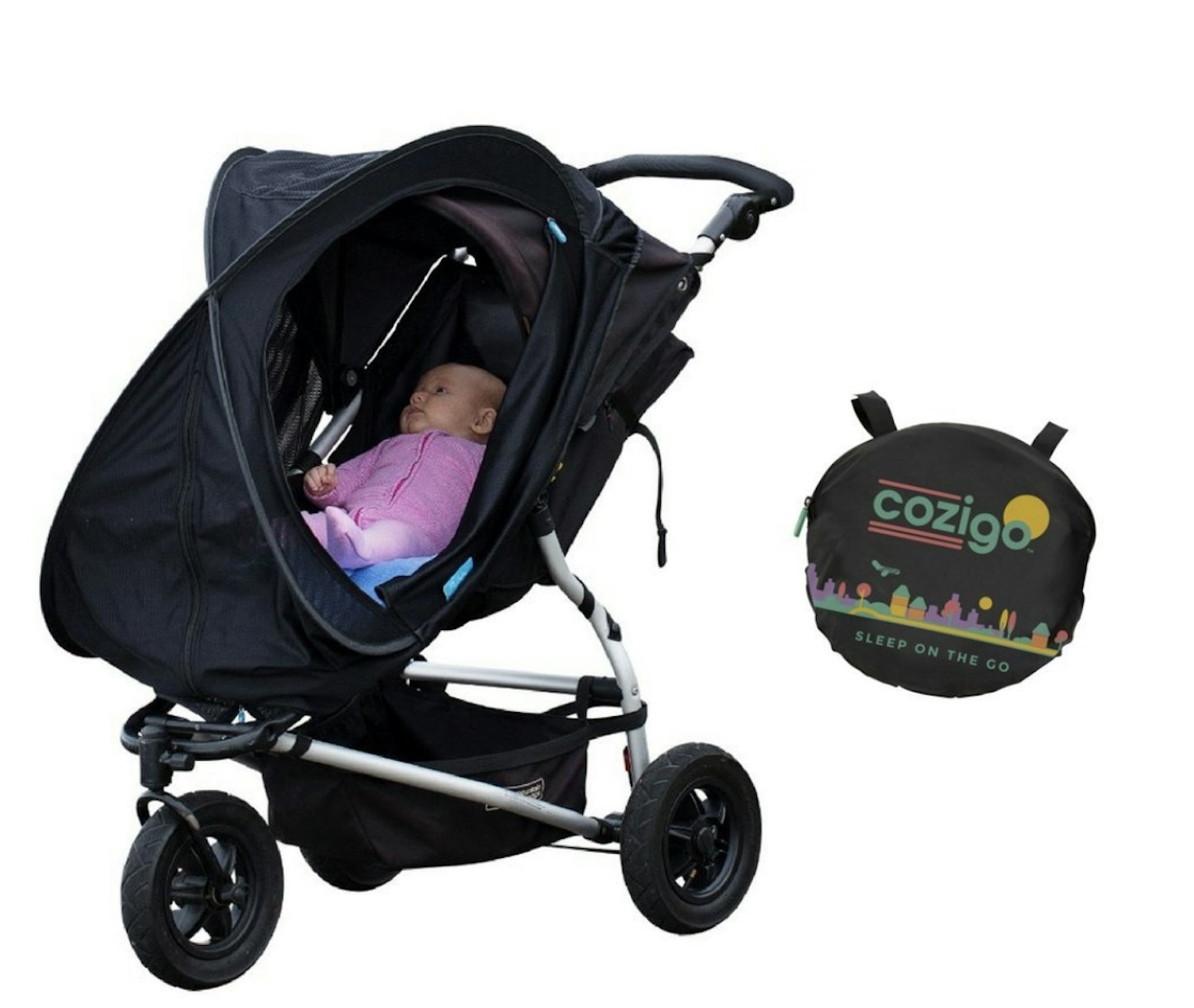 2 of 3
2 of 32) CoziGo Sleep Easy Travel Cover, £59.99, Amazon
‘This is a sleep and sun shade that you can use on your baby’s buggy and on bassinets when you’re flying,’ says Karen. ‘It’s really helpful on the plane because it blocks out the bright lights and the distractions of all the people walking up and down the aisles.’
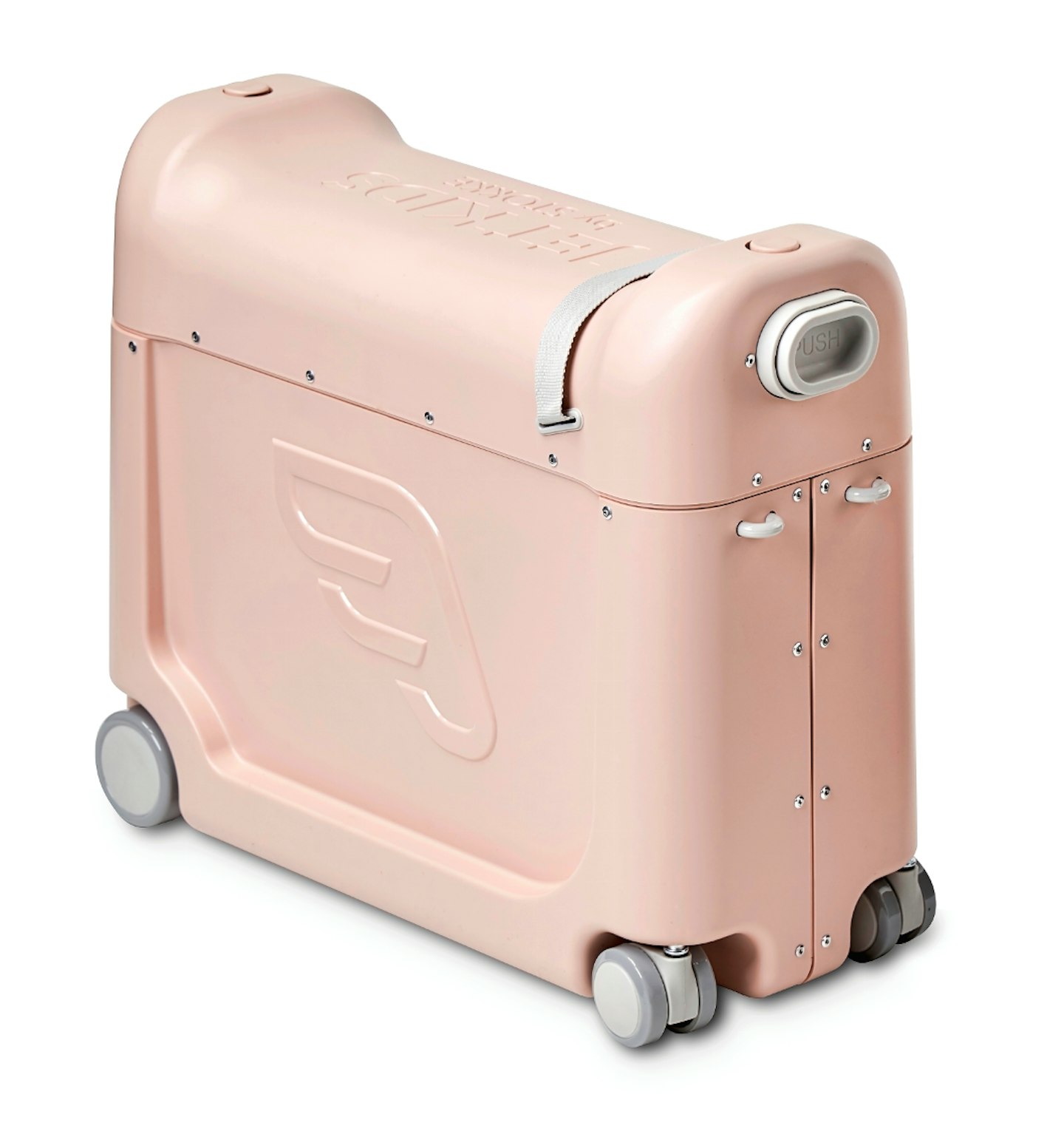 3 of 3
3 of 33) JetKids by Stokke BedBox
‘This is an amazing piece of kit,’ says Karen. ‘It’s a ride-on suitcase with plenty of room for your child’s travel essentials, but it can also turn your airplane seat into a ‘bed’. It genuinely helps toddlers to get a proper night’s sleep in the air.’
4) Get packing!
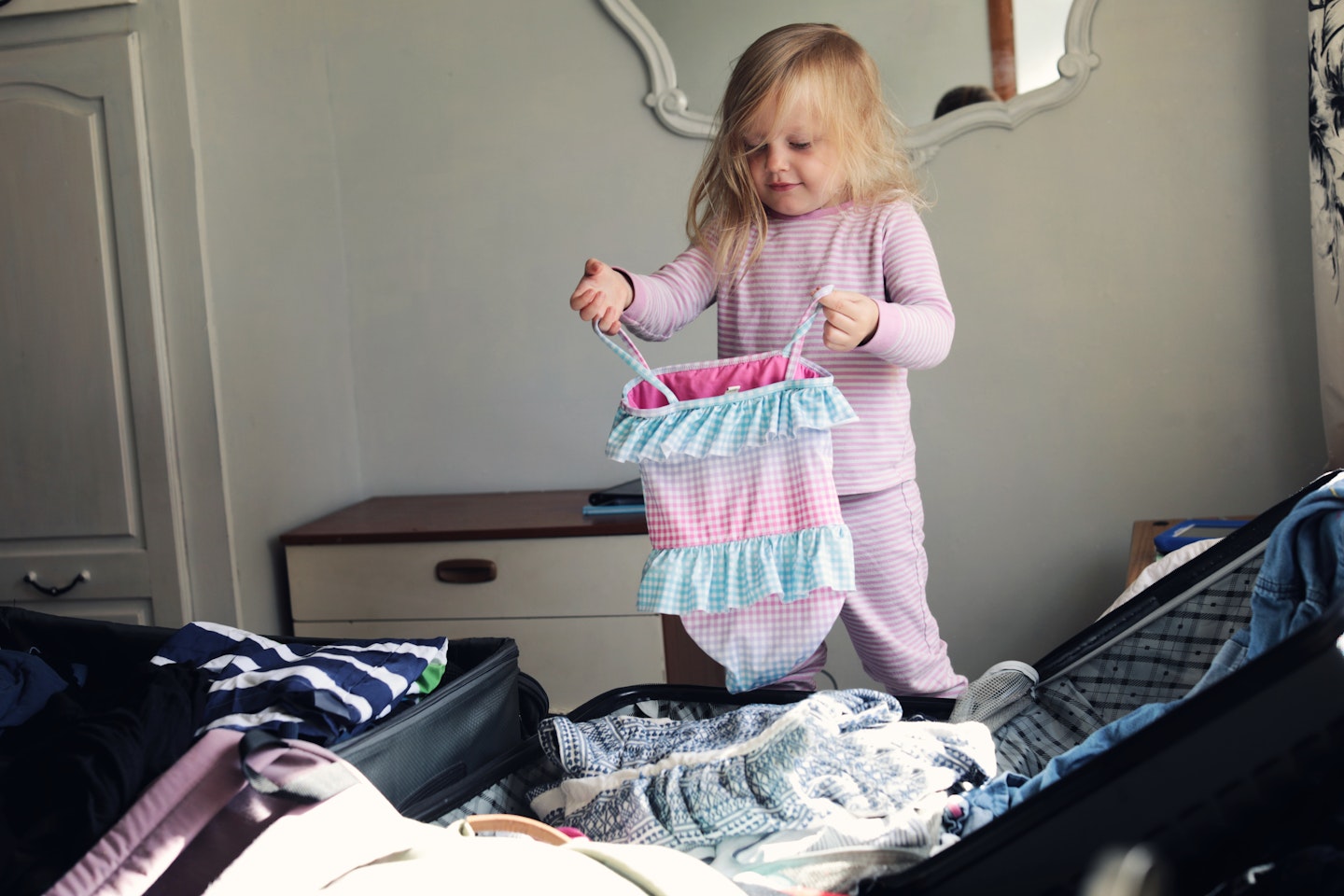
‘Wherever you’re going, you’ll want to pack as lightly as possible and still have the essentials with you,’ says Karen.
Three ways to save space in your suitcase:
Use packing cubes: These fabric containers help to squash your clothes down so they take up less space and they keep your stuff organised. And if you’re packing bulky items like jackets or baby blankets, use vacuum bags to squash out the air and maximise your space.
Swap bottles for solid shampoo and conditioner bars: they’ll save space and reduce your plastic use. Win-win! You can also get solid shower gel, solid perfume, solid sunblock, solid moisturiser from brands such as Ethique and Lush.
Invest in Turkish/hammam towels (aka peshtemals): Made from premium Turkish cotton, they’re large, soft, absorbent and thin, which means they dry quickly and fold up really small – great for packing light.
Read more: The best travel cots for babies and toddlers
Make the journey a breeze
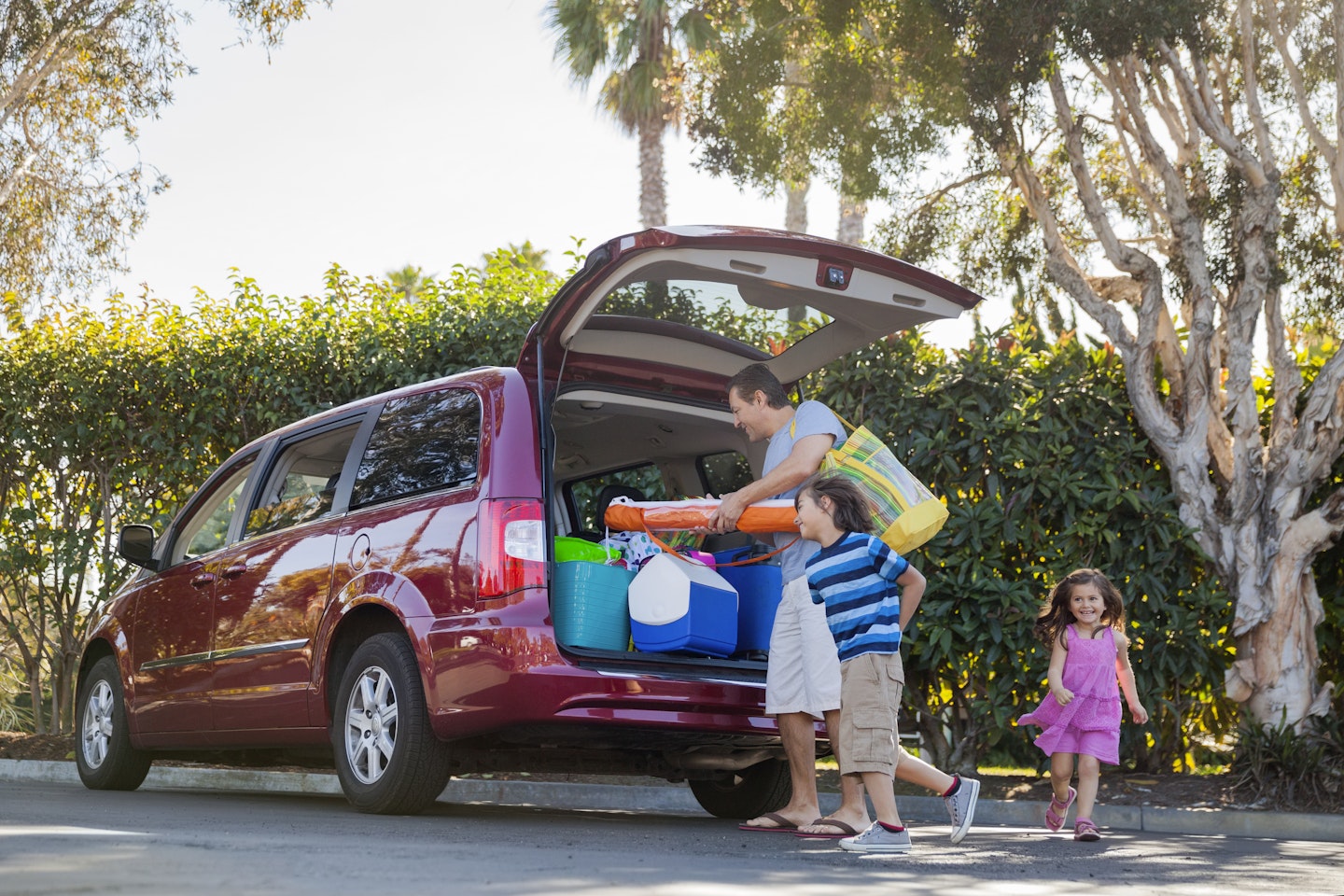
Follow these three steps to success...
Time it well: ‘We always try to coincide the start of our car journeys with morning nap-time,’ says Karen. ‘If the kids nod off as soon as we get on the road, we know we have a stretch of time when they won’t be fidgety, hungry or needing a wee! And by the time they wake up, we’re ready for a break ourselves. On a short-haul flight we travel during the day and don’t stress about routine. On a long-haul flight we travel at night and hope that the kids sleep as usual.’
Tell toddlers what to expect: If toddlers know in advance what’s going to happen during the day, they feel far more relaxed. So, if you’re going on a flight for the first time, read your tot books about flying, show him pictures of a plane, inside and out, and – if possible – even take him to the airport to see what it’s like before your holiday departure date. ‘And whatever form of transport you’re taking, give your youngster an idea of how long you’ll be travelling for, in a way he understands. You could say, ‘We’ll be arriving at Nanny’s when the sun’s gone to bed and it’s dark.’
Think SAS (Snacks, Activities, Sleep): ‘These are the three key things that make a journey go at its best,’ says Karen. ‘Always have water and a bag of your kids’ favourite snacks. Bring a bag of age-appropriate toys or activitiesto dole out at intervals along the way. It’s better to get new things that your youngster hasn’t seen before so he’ll spend more time engaging with them. You could even take it up a notch and wrap every item so that it’s like having lots of presents to speed you along the way. I used to make my own travel bags, but now I buy brilliant pre-made ones from keepemquiet.com.’
Fun things for a toddler travel pack:
-
A sticker book
-
A colouring book and crayons
-
A picture book
-
Window gel stickers
-
Stacking cups
-
A puppet
-
Safari animal figurines
-
A toy phone
-
Fuzzy felt
-
A Manhattan Toy Skwish
When you’re travelling by car...
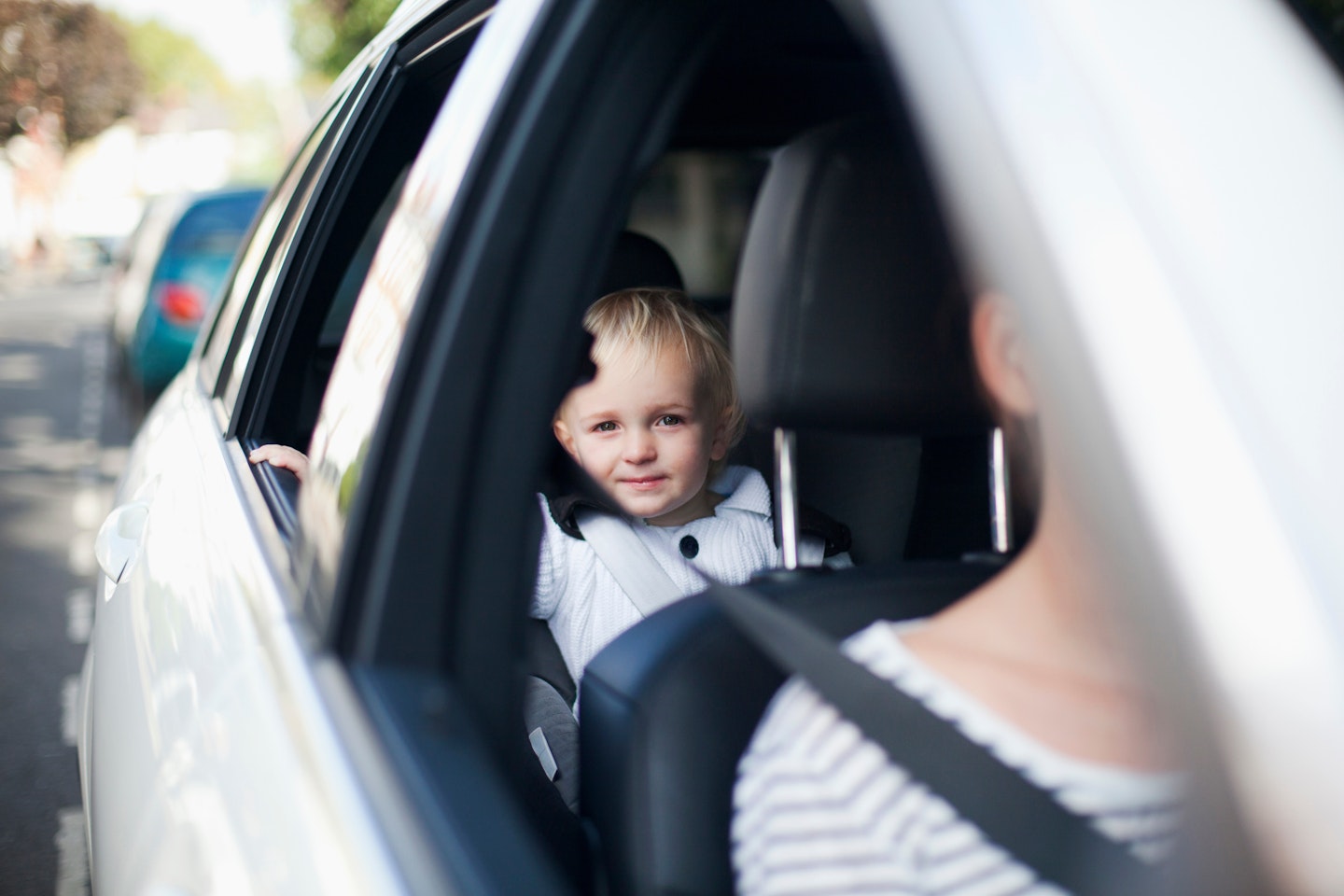
- Make sure your car is in good condition before you head off on a long journey – and have a breakdown policy that covers you for the UK and for any country that you’re visiting. ‘If you’re renting a car in another country, check in advance to see if they require you to have an international driving permit,’ says Karen.
- Put a sheet down over your back seat and put the car seats on top of it. This will make it much easier to clean out all the crumbs at the end of the journey.
- Every one to two hours, have a break. Experts recommend that two hours is the maximum that a baby should stay in a car seat at any one time, while newborns shouldn’t be in a car seat for more than 30 minutes at a time and should always have an adult sitting next to them to keep an eye on them.
Read more: 13 of the best car games for toddlers
When you’re taking a plane...
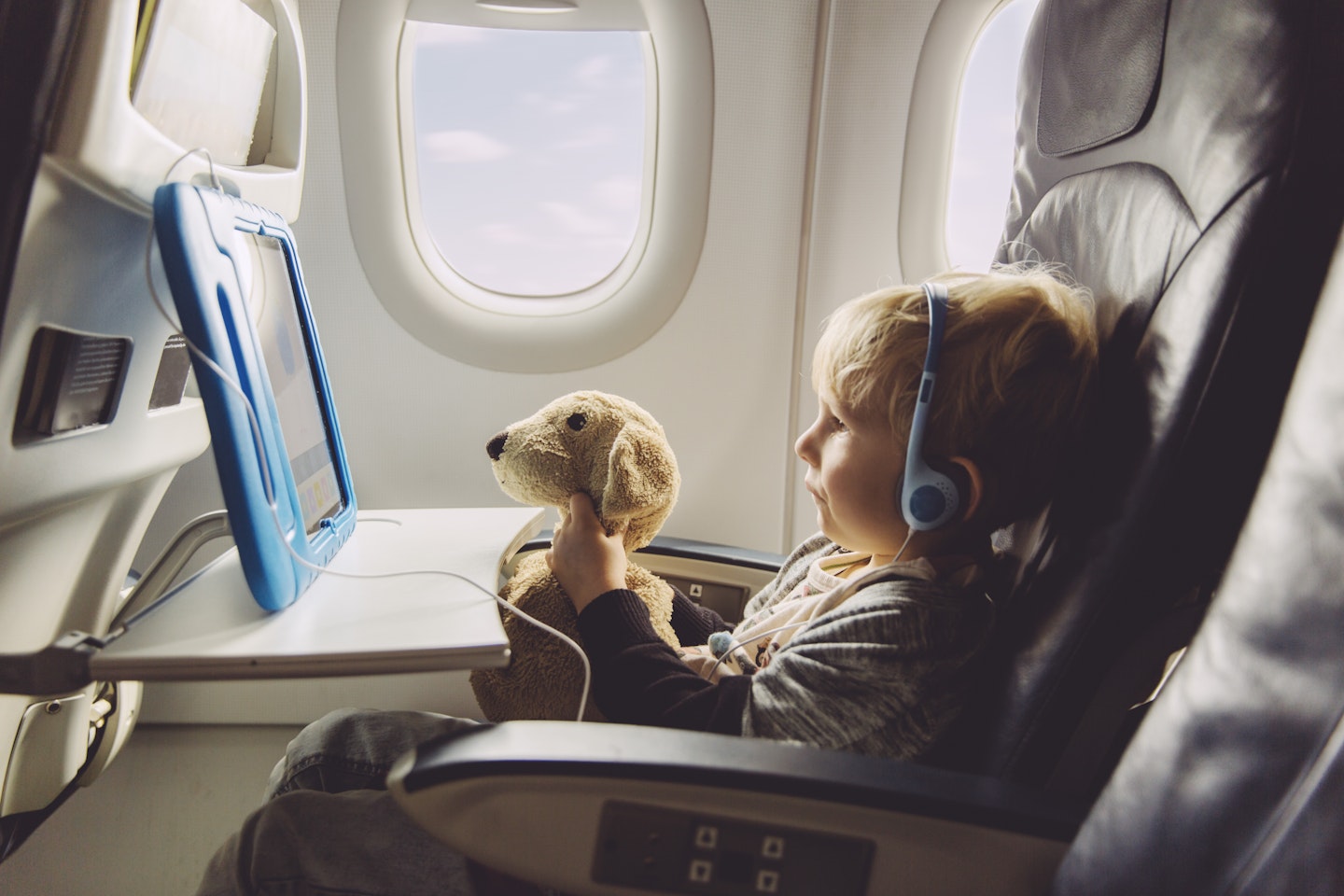
1) Get the best seats. ‘If you’re flying with a baby, when you book your flight ask if you can have the front row bulkhead seats,’ says Karen. ‘If you get them, ask the airline to give you a bassinet (a plane cradle) for your baby to sleep in. You’ll have to check the policy for the age/ weight and height of infants the bassinet holds, because each airline is different – but usually, priority is given to younger babies.’
2) Research your airport. Once you know where you’re flying from, research the airport to see what facilities it offers to families. There may be play areas, a parent room, a meet-and-assist service, a porter, even a kids-eat-free restaurant offer.
3) Order a ‘toddler meal’. ‘Most airlines provide toddler-specific meals but you have to order them in advance,’ says Karen. ‘But, if you can, give your youngster a meal in the airport before you travel – and take a bag of familiar snacks with you for the flight. That way, if he hates the plane food, he won’t be hungry.’
‘When you’re travelling with a baby, you’re allowed to take enough baby food, baby milk and sterilised water for the journey,’ says Karen. ‘There isn’t a legal limit – so take enough to cover the flight, plus extra in case of delays. Not all the security staff at airports are aware of that rule, so it’s worth printing out the official guidelines and taking them with you. You’ll find them at gov.uk.’ You might be asked to taste some of the liquids or food too.
And… relax!
So you’ve made it to your destination, sanity intact, you’ve managed to remember everything you need, and now all you need to concentrate on is having fun!
Useful apps and sites
-
Translate.google.co.uk: Ask for directions, or to have your baby's food heated in a restaurant.
-
fitfortravel.nhs.uk: Useful info on how to stay safe and healthy abroad…
-
Flight Board app: Keep an eye on the Arrivals/Departures board at the airport
-
jetlifebaby.com: Get tips for travelling with a tot, from jet lag to packing.
-
Google Maps: Navigate & Explore app: Navigate for free wherever you are for me…
Meet the expert: Karen Edwards is the founder of travelmadmum.com. So far, she’s travelled to more than 40 countries with her children, Esme, four and Quinn, two.
Now read:
